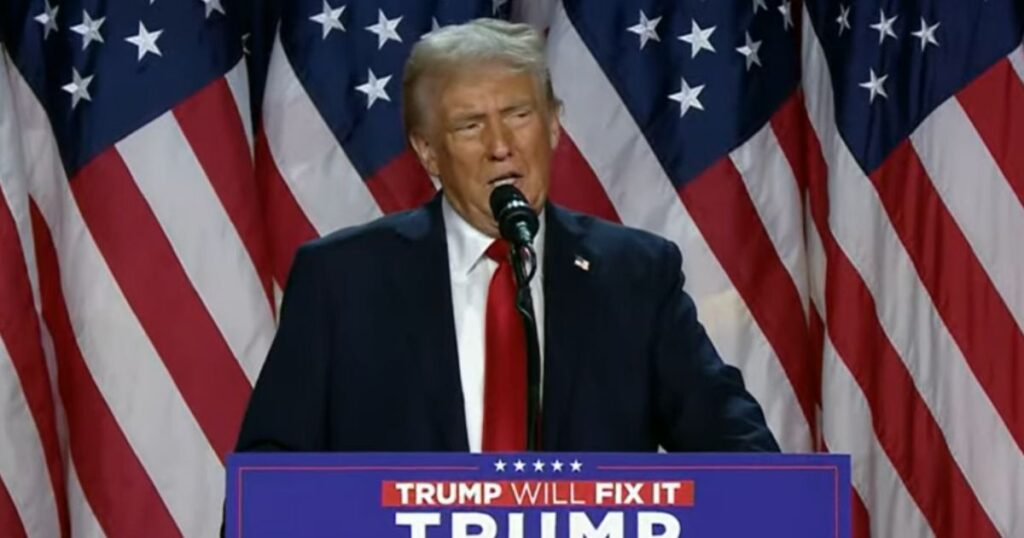The contrasts between Donald Trump’s walk-on songs at his victory gatherings in 2016 and the current election in 2024 showcase a notable shift in thematic focus. In 2016, the music selected was the grandiose score from the 1997 film “Air Force One,” which aligned with the spectacle of Trump’s entrance in a New York City hotel ballroom. However, for his recent victory party held in West Palm Beach, Florida, Trump returned to a more personal and heartfelt choice: Lee Greenwood’s “God Bless the USA.” This adjustment highlights not only a change in Trump’s political narrative but also a response to current events, particularly the recent endorsement of Kamala Harris by Harrison Ford, prompting the exclusion of the earlier song.
“God Bless the USA” serves as a reflection of gratitude and prayer, creating a more profound emotional setting for Trump’s entrance. Greenwood, who has performed this iconic song at numerous Trump events during the 2024 election cycle, emphasized the significance of prayer, attributing Trump’s survival of an assassination attempt to divine intervention. This moment was marked by a rejuvenation of Trump’s campaign spirit, signified through the song’s lyrics, which resonate with themes of faith and patriotism. Additionally, Greenwood announced a fresh jazz-inspired version of the song along with a music video featuring Trump, further intertwining their identities within the context of this campaign.
During his victory speech, Trump reiterated a sense of purpose linked to his near-fatal experience. He stated that many had remarked that God had spared him for a greater mission: to restore the United States to its former greatness. This declaration signals a shift toward communal gratitude rather than a self-centered narrative. His focus on God and the American populace reflected a broader amalgamation of spirituality and nationalism that resonates with many of his supporters. Trump’s remarks echoed a collective vision, reinforcing the idea of embarking on a significant journey alongside his followers in pursuit of this restoration.
In analysis of Trump’s transformation post-assassination attempt, his former cabinet secretary, Dr. Ben Carson, indicated that the president-elect has emerged as a significantly changed individual. This perspective parallels historical accounts of leaders like Ronald Reagan, who also appeared transformed after surviving an assassination attempt in 1981. Reagan’s commitment to serving God post-attack became a hallmark of his presidency—an echo of the sentiments Trump currently expresses following his close brush with death. Carson’s gathering of Christian leaders to pray for Trump exemplifies how this newfound sense of purpose is fortified by a robust network of faith-based support.
Furthermore, when asked by Dr. Phil why he believes he was spared, Trump attributed his survival to God’s love for the country and the anticipated ability to lead it back from turmoil. This assertion encapsulates a strong belief in divine providence intertwined with nationalist rhetoric, which has been a consistent theme in Trump’s message. The alignment of his campaign strategy with religious undertones narrows his support base further into the evangelical community, creating a coalition built on faith-backed patriotism.
As the 2024 election unfolds, Trump’s resolve to “Make America Great Again” appears to be reinforced by both personal conviction and religious affirmation. This blend of political and spiritual messaging has the potential to galvanize supporters who resonate with the notion of a mission-inspired leadership. The evolving narrative from self-centered triumph to a collective cause rooted in faith and national pride will be pivotal in shaping the forthcoming campaign dynamics and ultimately, the perception of Trump’s leadership moving forward.

